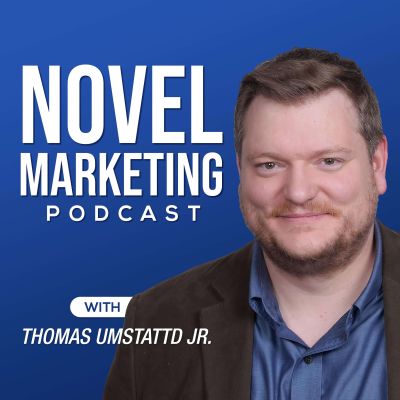The longest-running book marketing podcast in the world. This is the show for writers who want to build their platform, sell more books, and change the world with writing worth talking about. Whether you self publish or are with a traditional house, this podcast will make book promotion fun and easy. Thomas Umstattd Jr. interviews publishers, indie authors, and bestselling traditional authors about how to get published and sell more books.
https://www.authormedia.com/
Why traditionally published authors should NOT pay for marketing.
If you are traditionally published, chances are your publishing company is putting pressure on you to “build your platform” and spend time and money to marketing your book. Most authors never question this and just see spending money on marketing as part of the job.
But is it?
Let’s take a closer look and see if it makes sense to spend time and money on marketing.
Reason #1: Traditionally published authors don’t have the sales information they need to succeed.
“The only way to avoid wasting money on marketing that doesn’t work is experimentation and measurement.” Click to Tweet
If you do a big promotion on December 15th, how much did it cost you and how many additional books did it sell? If you are traditionally published, there is no timely way to know how many books you sold on Dec 15th as compared to Dec 14th, and, depending on the nature of your royalty report, no way to find out.
This leads to a lot of superstitions within the traditional publishing world as to what works in terms of marketing. Traditionally-published authors typically have no idea what is and is not working as far as marketing tactics go. The result is that the money they spend is usually wasted on things like blog tours and social media campaigns that result in few to no sales.
As long as the author does not have timely access to sales data, it doesn’t make sense for the author to be spending time and money promoting the book
But that is just the first problem.
Reason #2 The math doesn’t work.
90% of books have not sold through their advance. This means these authors get $0 in additional royalties on sales.
So, when a traditionally published author pays for marketing, they are effectively reducing their pay. If an author gets a $10,000 advance and then pays $4,000 for marketing, their effective advance is only $6,000. This is why publishers put so much pressure on authors to market their books. (Shout out to Randy Ingermanson for introducing me to the math on this.)
Some publishers are able to convince authors to spend their entire advance on “platform building.” The result is that these authors are effectively writing a book for free.
If you have sold through your advance, the math still does not work.
Let’s say traditionally published Barbara has a 25% royalty on her ebook. If her ebook sells for $7.99 then her royalty would be $2.00 a copy.
Let’s say 10% of people who click an ad for her book go on to buy the book. That means she has to get 10 clicks for every sale. 10 clicks at $0.25 a click is $2.50 to acquire a reader–a reader for which she gets paid a royalty of $2.00. This means if she is paying for ads she is losing $0.50 per reader.
She could get a better return playing the slots in Vegas.
Indie Authors Have Better Marketing Options
Now let’s imagine Barbara is self-published.
Through Create Space and KDP, she has real-time access to sales data. On December 16, she can know exactly how many books sold on December 15 as compared to December 14. This allows her to experiment and find out what works best specifically for her book and her target readers.
“Indie authors don’t have to rely on marketing superstitions from other authors and can avoid repeatedly wasting money on tactics that don’t work.” Click to Tweet
Barbara also gets a big enough percentage of the sales price where buying ads can make sense. If she has a 70% commission on a $4.99 ebook, that comes out to $3.49 per book. If it costs $2.50 to acquire a reader, that means she nets $0.99 per reader.
“The difference between indie publishing and traditional publishing can be the difference between making $1 a...
